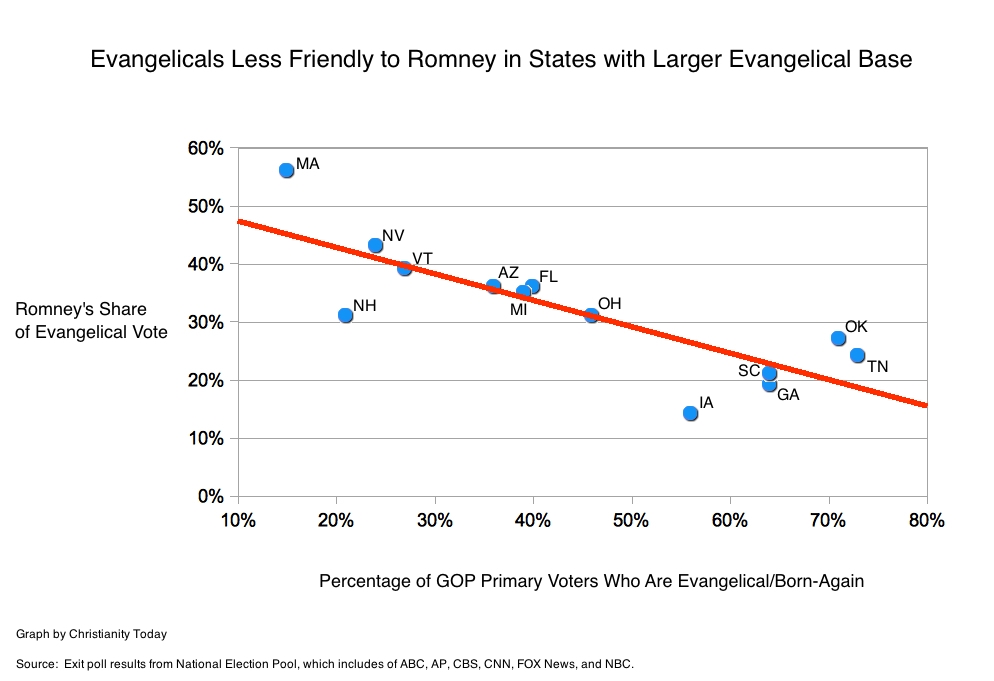Mitt Romney won six out of the 11 Super Tuesday primaries, victories that followed a regional pattern from past primaries. Romney has performed best in New England and the mountain west but he has done poorly in the Midwest and even worse in the southern states. In a closely watched state, Romney edged out Rick Santorum by one percentage point in Ohio. Santorum won in Tennessee, Oklahoma, and North Dakota, and Newt Gingrich picked up a win in Georgia.
Beneath the Republicans’ regional split is Romney’s failure in states where the Republican base is made up of socially conservative evangelical voters. In New England and other states where evangelicals are in the minority, Romney has been able to win over the lion share of the evangelical vote. The result is a double-whammy for Romney: in states where the GOP is made up of more evangelicals, evangelicals are less likely to vote for Romney.
In Vermont, Romney received four out of every 10 evangelical votes and performed similarly among evangelicals in Nevada. In both cases, evangelicals make up less than a third of Republican voters. In New Hampshire, where there were many more candidates, Romney received about a third of evangelical voters, equal to Santorum’s share. However, in states like South Carolina, Georgia, Tennessee, and Oklahoma, where evangelicals make up a majority of GOP voters, Romney received less than 30 percent of votes from evangelicals.

After Tuesday’s primaries, Gingrich looked forward to more contests in the south. Calling himself the proverbial “tortoise” in the race, Gingrich told supporters, “Tomorrow will bring another chapter in the race for the nomination. It’s a chapter for the fight for the souls of the Republican Party. It’s a chapter in the fight for the nature of America.”
Romney focused on his victories in a speech to supporters Tuesday, where he said, “We’re counting up the delegates, and that looks good. And we’re counting down the days until November, and that looks even better.”
While Romney may not have the Republican base behind him yet, he excels in at least one area: money.
Santorum pointed to Romney’s campaign spending as a sign of Santorum’s resilience. “We went up against enormous odds, not just here in the state of Ohio, where who knows how much we were outspent, but in every state,” he told a crowd after Tuesday’s results came in. “There wasn’t a single state in the list that I just gave you where I spent more money than the people I was able to defeat to win that state. In every case, we overcame the odds.”
Romney faces more difficult contests next week. Kansas’ caucuses will take place on Saturday and on Tuesday he faces primaries in Alabama and Mississippi. In each state, evangelicals will likely make up a large majority of Republican voters. In the coming weeks, Romney will face more challenges in Missouri, Louisiana, and Wisconsin. April 24, however, should be a strong day for Romney as he will see contests in Connecticut, Delaware, New York, and Rhode Island, where evangelicals make up less of the Republican vote than they do in southern states. That day, Romney will also battle Santorum for his hometown votes in Pennsylvania.








